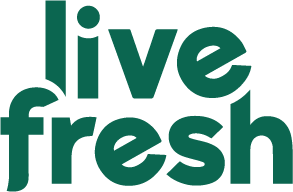Fasten und auch Heilfasten ist in den letzten Jahren immer populärer geworden – und das nicht ohne Grund! Es gibt viele spannende Gründe, warum Menschen eine Zeit auf feste Nahrung verzichten und fasten: um abzunehmen, den Körper zu entgiften, den Geist zu klären oder einfach, um sich fitter zu fühlen. Aber eine der häufigsten Fragen, die uns immer wieder gestellt wird, ist:
Highlights
- Während des Fastens nutzt der Körper zuerst Glykogenspeicher, bevor er nach etwa 12–24 Stunden in die Fettverbrennung übergeht.
- Faktoren wie vorherige Ernährung, Aktivitätslevel und Stoffwechsel beeinflussen, wie schnell die Fettverbrennung beginnt.
- Fasten fördert nicht nur die Gewichtsabnahme, sondern verbessert auch die Insulinempfindlichkeit, sorgt für konstante Energie und hat entgiftende Effekte.
- Mythen wie „Fasten verlangsamt den Stoffwechsel“ oder „Fettverbrennung beginnt erst nach Tagen“ sind falsch – der Körper stellt sich schneller um, als viele denken.
- Eine gute Vorbereitung, ausreichende Flüssigkeitszufuhr und leichte Bewegung unterstützen den Fettabbau und machen das Fasten effektiver und angenehmer.
When does my body actually start to burn fat?
Today we take you on a journey through the processes you go through during fasting, explain when and how fat burning starts and give you valuable tips on how to get the most out of your fasting time.
What happens in the body during fasting?
When you are fasting, this primarily means: no or hardly any calorie intake. Without new energy from outside, your body has to fall back on its reserves. But it doesn't do this immediately from fat deposits - there are other sources of energy that it prefers to use first.
- The first source of energy: glycogen stores
Immediately after your last meal, your body has enough energy from the carbohydrates you have eaten. These are stored as Glycogen stored in the liver and muscles. As long as these stores are full, this energy is used first. - What happens after 12-24 hours?
When your glycogen stores start to run low, your system has to get creative. Now it starts to fall back on other sources of energy - and here comes the Fat comes into play. Your body starts the so-called Lipolysisin which fat cells are broken down into fatty acids and glycerol to produce energy. - The role of ketone bodies
In addition to direct fat burning, you start to burn so-called Ketone bodies to produce. These are produced in the liver from fatty acids and serve as a source of energy for your brain when carbohydrates are no longer available. This process is a sign that you have completely switched to fat metabolism.
When exactly does fat loss begin?
The time at which your body starts to lose fat depends on several factors. For most people, fat burning starts after about 12-24 hours when the glycogen stores are empty. But how quickly this happens varies from person to person. These factors play a role:
- Your diet before fasting: Did you eat a lot of carbohydrates before fasting? Then it will take longer for your glycogen stores to be depleted.
- Your activity level: If you are physically active during fasting, you burn glycogen faster and start burning fat more quickly.
- Your metabolism: Some people naturally have a faster metabolism and burn fat more quickly.
An interesting point: the more often you fast or eat a low-carb diet, the faster your system can learn to switch to fat as an energy source.
A popular method to specifically promote fat burning is the intermittent fastingin particular the 16:8 method. During the 16-hour fasting phase, insulin levels drop and the body draws more heavily on fat reserves. This method accelerates the switch to fat-burning and for many people is a practicable optionwhich Integrate the effects of fasting into everyday life.
The Therapeutic fasting according to Buchinger on the other hand is a more intensive form of fasting, in which the body is supplied exclusively with liquids such as broths and juices for several days. The extended fasting period completely empties the glycogen stores and activates fat burning to the maximum. This method is particularly suitable for holistic detoxification and regeneration.
The benefits of fat burning during fasting
Switching to fat metabolism brings some exciting benefits. Here are the most important ones:
- Weight loss
It's obvious: when you burn fat, you use your fat reserves as a source of energy - and that helps you lose weight. - Constant energy
In contrast to carbohydrates, which often cause energy highs and lows, fat provides a constant supply of energy. Many people report that they even feel fitter and clearer-headed during fasting. - Better insulin sensitivity
Fasting helps to stabilize your blood sugar levels and improve insulin sensitivity. This is not only good for your health, but can also help you lose weight. - Detox effect
Adipose tissue also stores harmful substances that are released during fat breakdown and can be excreted via the liver and kidneys.
Typical myths about fat burning and fasting
When it comes to fasting, there are many persistent myths. We clear up the most common misconceptions:
- "You only lose water weight."
This is partly true for the first few days because glycogen binds water. But as soon as fat burning starts, you actually lose body fat. - "Fasting slows down the metabolism."
The opposite is the case: during short periods of fasting, your Basal metabolic rate even increases slightly. The metabolism only slows down with longer periods of fasting or too few calories over weeks. - "Fat loss only starts after several days."
This is not correct. Fat burning starts after about a day, as soon as the glycogen stores are empty.
Tips on how to get the most out of your fasting
Do you want to support fasting in the best possible way? Here are our best tips:
- Preparation is everything
Make sure you eat light meals before fasting - as few carbohydrates as possible and lots of vegetables. This makes the transition easier.
Ideal for this are the Lower carb high protein ready meals from LiveFreshsuitable.
- Sufficient fluids
Drink plenty of water or unsweetened tea while fasting. This not only helps your metabolism, but also your well-being. - Easy movement
Walks, yoga or light workouts are perfect for boosting fat burning without overtaxing your body. Here you will find a few great units for this in various levels of difficulty: Yoga Starter or Intensive workout - Fasting is not a competition
Listen to your body! If you feel weak or dizzy, take a break or drink a clear broth to replenish electrolytes. - Start slowly after fasting
Your first bite after fasting should be easy to digest, for example steamed vegetables or soup. Here you can find more information about Breaking the fast.
FAQ: Your questions about fasting and fat loss
When exactly does fat burning start?
After about 12-24 hours, when your glycogen stores are depleted.
Is fasting suitable for everyone?
Not for everyone. Pregnant women, nursing mothers and people with certain illnesses should speak to a doctor beforehand.
Can I do sport while fasting?
Light exercise is even good, but intensive sport is not recommended.
How often can I fast?
That depends on the method. Intermittent fasting you can do daily, but longer fasts only occasionally.
Is fasting the best way to lose weight?
Fasting can help to reduce fat, but it is only one part of the puzzle. A healthy diet and exercise are always part of it.
Conclusion
Fasting is a wonderful way to support yourself, burn fat and do something for your health at the same time. It is important that you listen to your body and organize fasting in a way that suits you. With the right preparation and a little patience, you can experience how your inner system responds to this natural method.
Das könnte dich auch interessieren

Dr. Ulrike Fischer
Nutritionist
Developed on a scientific basis by Dr. Ulrike Fischer, who holds a doctorate in nutritional science.
Fasten und auch Heilfasten ist in den letzten Jahren immer populärer geworden – und das nicht ohne Grund! Es gibt viele spannende Gründe, warum Menschen eine Zeit auf feste Nahrung verzichten und fasten: um abzunehmen, den Körper zu entgiften, den Geist zu klären oder einfach, um sich fitter zu fühlen. Aber eine der häufigsten Fragen, die uns immer wieder gestellt wird, ist:
Highlights
- Während des Fastens nutzt der Körper zuerst Glykogenspeicher, bevor er nach etwa 12–24 Stunden in die Fettverbrennung übergeht.
- Faktoren wie vorherige Ernährung, Aktivitätslevel und Stoffwechsel beeinflussen, wie schnell die Fettverbrennung beginnt.
- Fasten fördert nicht nur die Gewichtsabnahme, sondern verbessert auch die Insulinempfindlichkeit, sorgt für konstante Energie und hat entgiftende Effekte.
- Mythen wie „Fasten verlangsamt den Stoffwechsel“ oder „Fettverbrennung beginnt erst nach Tagen“ sind falsch – der Körper stellt sich schneller um, als viele denken.
- Eine gute Vorbereitung, ausreichende Flüssigkeitszufuhr und leichte Bewegung unterstützen den Fettabbau und machen das Fasten effektiver und angenehmer.
Inhalt







